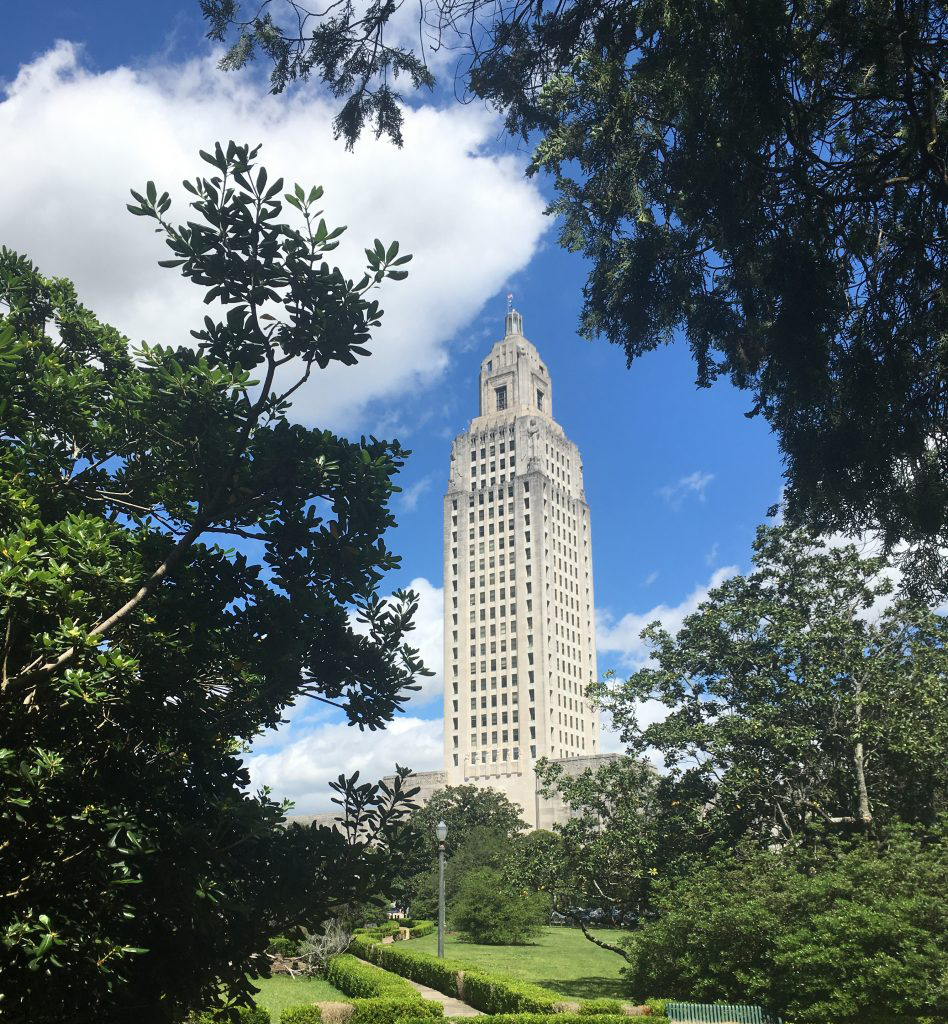By David Jacobs | The Center Square
The Louisiana Legislature ended a fall session, their third of the year, a few days early on Friday.
While some legislators say the session was largely a waste of taxpayer dollars, others pointed to their work regarding COVID-19, hurricane recovery and the unemployment insurance trust fund to argue otherwise.
“Many people in this building, some members of the press, have said we didn’t accomplish much this session,” Sen. Ronnie Johns said Friday. “I beg to differ.”
Johns hails from southwest Louisiana, which was hit by two major hurricanes this year. He thanked his colleagues for diverting $20 million in savings to start repairs at McNeese State University and SOWELA Technical Community College, sending $1.4 million to local governments in three hurricane-ravaged parishes, ensuring school districts where large numbers of students have not yet returned home won’t lose state funding, and for allowing graduating seniors who will finish high school outside the state to be eligible for state-funded college scholarships.
Legislators passed three measures that, taken together, will prevent the higher business taxes and benefit reductions that otherwise would kick in when the state’s unemployment insurance trust fund balance runs low. The fund, which held more than $1 billion before the COVID-19 pandemic began, has been sapped by unprecedented demand.
Louisiana, like many other states, is forced to borrow hundreds of millions of dollars from the federal government to pay legally required unemployment benefits. While lawmakers were able to find $85 million to shore up the fund, a long-term solution was not identified.
Lawmakers also established tax breaks for businesses and a sales tax holiday for consumers. The inclusion of $22 million of local “pet projects” in a spending bill drew criticism, though supporters said the money would be used for essential infrastructure, police and fire protection, and COVID-19 and hurricane relief.
“We did what we came here to do,” Senate President Page Cortez said. “We secured funding for those areas most heavily impacted by the recent hurricanes. We agreed on a package of bills to protect businesses and the unemployed. And, we passed several measures critical to the state’s response to COVID-19, including a compromise on how emergency declarations are handled.”
Democratic Gov. John Bel Edwards’ use of his emergency executive powers to impose mandates meant to limit the spread of the new coronavirus inspired the fiercest debates. While there was broad bipartisan support for the restrictions in March when Louisiana was among the world leaders in COVID-19 case growth, many Republicans argue the mandates no longer are needed and Edwards by himself does not have the authority to keep them in place indefinitely.
But the Senate killed most of the measures to roll back or end the mandates that the more conservative House of Representatives passed. The compromise bill Cortez mentioned, which calls for allowing legislators to amend an emergency executive order, made it to the governor’s desk, but not with enough support to override a potential veto.
Current law already allows either chamber to end or suspend a governor’s emergency order, and House Republicans on Friday said they had gathered enough signatures to do so. But the petition only suspends the order for seven days, and the administration is not expected to comply and issue a proclamation lifting his order, so a court battle is likely.
“We did less than in any other session in the 10 years I’ve been there,” said Rep. Alan Seabaugh, a Shreveport Republican. “I don’t know that we passed more than half-a-dozen bills that aren’t going to get vetoed. I just don’t think we accomplished anything.”
Seabaugh said getting the petition signed was the session’s most important development. But lawmakers don’t need to be in session to circulate a petition. He has heard the session cost taxpayers about $2 million, though he wasn’t certain if the tally was accurate.
On Friday, the Senate killed House Bill 38 by Rep. Lance Harris, an Alexandria Republican who is running for Congress, that would have allowed state officials to punish local governments that reduce police funding by 25 percent or more by cutting off state construction dollars and tax dedications. Sen. Jay Luneau, an Alexandria Democrat, essentially filibustered the bill, giving a long speech about it while his colleagues were ready to adjourn. Rather than wait him out, senators returned the bill to the calendar.
House Bill 51, which bans local election officials from taking private donations to defray election expenses, achieved final passage Friday and was sent to the governor.
Facebook founder Mark Zuckerberg and wife Priscilla Chan offered $250 million in grants to local election officials around the country to ensure “every eligible voter can participate in a safe and timely way and have their vote counted.” Secretary of State Kyle Ardoin initially urged local clerks of court to apply and many planned to do so, until Attorney General Jeff Landry warned that taking the grants could be illegal. Rep. Blake Miguez, the Erath Republican who authored HB 51, said his bill would clarify the law.
Democratic legislators argued that turning down the money doesn’t make sense, especially while they’re spending more taxpayer dollars on this year’s election. But supporters said outside money has the potential to corrupt election integrity, and if some parishes got the grants and some didn’t, that could lead to unequal treatment of voters.
Lawmakers also passed House Bill 72, which calls for at least $7.5 million of the grants distributed through a $275 million COVID-19 relief fund for businesses established in a prior session to go to bar owners who filed an application on or before Sept. 29.
Some legislators argue the program’s rules shouldn’t be changed after the fact, and State Treasurer John Schroder says the money is already obligated to current applicants. Supporters said bar owners should be ensured a significant portion of the money because they have endured the most stringent coronavirus restrictions.

